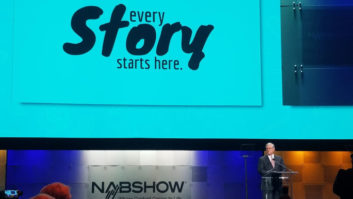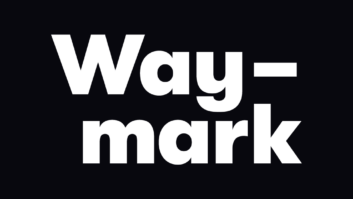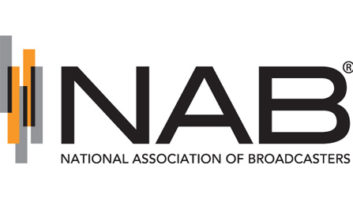Progressive Concepts is a radio broadcast equipment supplier based in the Chicago area. Eric Hoppe founded the company in 1990, starting it as a catalog sales organization; it has since expanded to other sales channels as well.
Hoppe opposes proposals in Washington to close a retail sales tax “loophole.” The issue affects buyers and sellers of broadcast equipment. As part of Radio World’s coverage of this issue, which we began in our Sept. 26 edition, I asked Hoppe to expand on his perspective.

Eric Hoppe, right, and administrative assistant Beth Yucus stand outside Progressive Concepts in Streamwood, Ill. McLane:What is Progressive Concepts’ position on the Marketplace Equity Act?
Hoppe: As you know, there are currently two separate bills on the Hill, the Marketplace Equity Act and the Marketplace Fairness Act. If either one were passed, it could have devastating effects on small Internet-based businesses like Progressive Concepts.
The biggest problem with both bills is that they set the exemption limit far too low for small businesses. One sets the exemption limit at an annual gross sales of less than $500,000, while the other sets the limit at $1 million in annual gross sales. The exemption limit would allow businesses whose annual gross sales are below the threshold to be exempt from the new law.
It is my opinion that even a business with $2 million to $3 million in gross annual sales is likely to lack the resources necessary to deal with the added costs associated with bringing their business into compliance with the plethora of new tax regulations from 44 other states. Unfortunately, there are no provisions in either bill for raising the exemption level.
Small businesses like Progressive Concepts would find themselves overburdened by additional administrative costs incurred by having to comply with over 44 new state sales tax laws. Larger online e-tailers such as Target or Wal-Mart are already collecting taxes in those states because they already have “nexus” [a physical presence of some sort] in those states, so they would be completely unaffected by the new law.
How do the existing retail sales tax laws affect your business operations? Do you currently collect state tax?
Progressive Concepts is located in Cook County, Ill. The existing sales tax laws have little effect on Progressive Concepts because the laws in Cook County are relatively easy to comply with. We simply collect the appropriate tax rate from any customers who are inside the state of Illinois and pass it along to the state in the form of an annual sales tax return. However, can you imagine the added time and costs associated with filing out 45 individual sales tax returns and mailing in 45 checks? Some states will require monthly returns, thereby compounding the problem for small businesses. It’s a huge can of worms that I’d rather not open.
A very small percentage, less than 1 percent, of our total sales originate within the state of Illinois. The majority of our sales are derived from out-of-state (interstate) and international sales. We also do a good deal of business with the federal government, who are exempt from state sales tax in Illinois.
There are only five states that currently have no sales tax: Alaska, Delaware, Montana, New Hampshire and Oregon.
If the proposed changes take effect, what impact do you anticipate they’d have on you?
It would be incredibly difficult for a small business with less than three employees such as Progressive Concepts to have to comply with the myriad of tax laws found in the other 44 states that currently collect sales tax. I find it ironic that the federal government would even consider passing a law that most certainly will stifle small businesses at a time when they should be nurturing them. After all, it’s the economic engines of small businesses that keep this country running.
Backers including the Consumer Electronics Association say this change simply would close a collection loophole; they consider it a matter of fairness and say the loophole is hurting brick-and-mortar retailers.
I vehemently disagree with anyone who claims that a change will “simply close a collection loophole.” The way that taxes on interstate commerce are currently treated do not contain a “loophole”; they are the law.
Let’s take a quick look at the Constitution of the United States of America, specifically the fifth and sixth paragraphs (clauses) of the ninth section of the first article.
They state: “No Tax or Duty shall be laid on Articles exported from any State. No Preference shall be given by any Regulation of Commerce or Revenue to the Ports of one State over those of another; nor shall Vessels bound to, or from one State be obliged to enter, clear, or pay Duties in another.”
So what do I say to anyone who feels that the current interstate taxation system has a “loophole” that needs to be closed?I would say that such a statement is tantamount to saying that anyone who voices his or her opinion in the free press is simply using a loophole in the First Amendment that needs to be closed.
For further reference also see the Supreme Court 1992 decision in Quill Corp. vs. North Dakota.[The URL is posted at radioworld.com/links.]
What impact would the change have on radio stations that buy from you and other vendors?
Obviously it would add to the cost that the customer pays in that customers would now be required to pay the local sales tax to the vendors. Whatever the local tax rate is where the sale originates would be the added cost to the customer.
What else should readers know about this issue?
Some may argue that customers are shopping at out-of-state e-tailers in order to avoid paying the sales tax. I disagree.I think that the main reason customers shop online rather than at brick-and mortar-stores are twofold.
First, with the current exorbitantly high costs of gasoline, it is cheaper to “let your fingers do the walking,” so to speak. Second, customers can find a much greater variety of options to choose from online.
Have you ever driven to your local retailer to look for a specific product only to find that they didn’t have what you were looking for, or they were out of stock? This is especially true for niche broadcast equipment sellers like Progressive Concepts. How many broadcast equipment dealers are located in your neighborhood? So I don’t feel that customers are shopping online solely for the purpose of avoiding sales tax.












